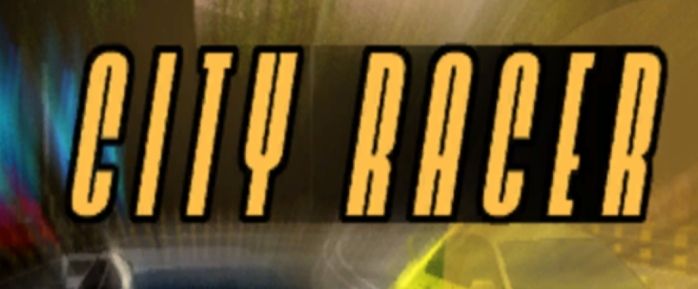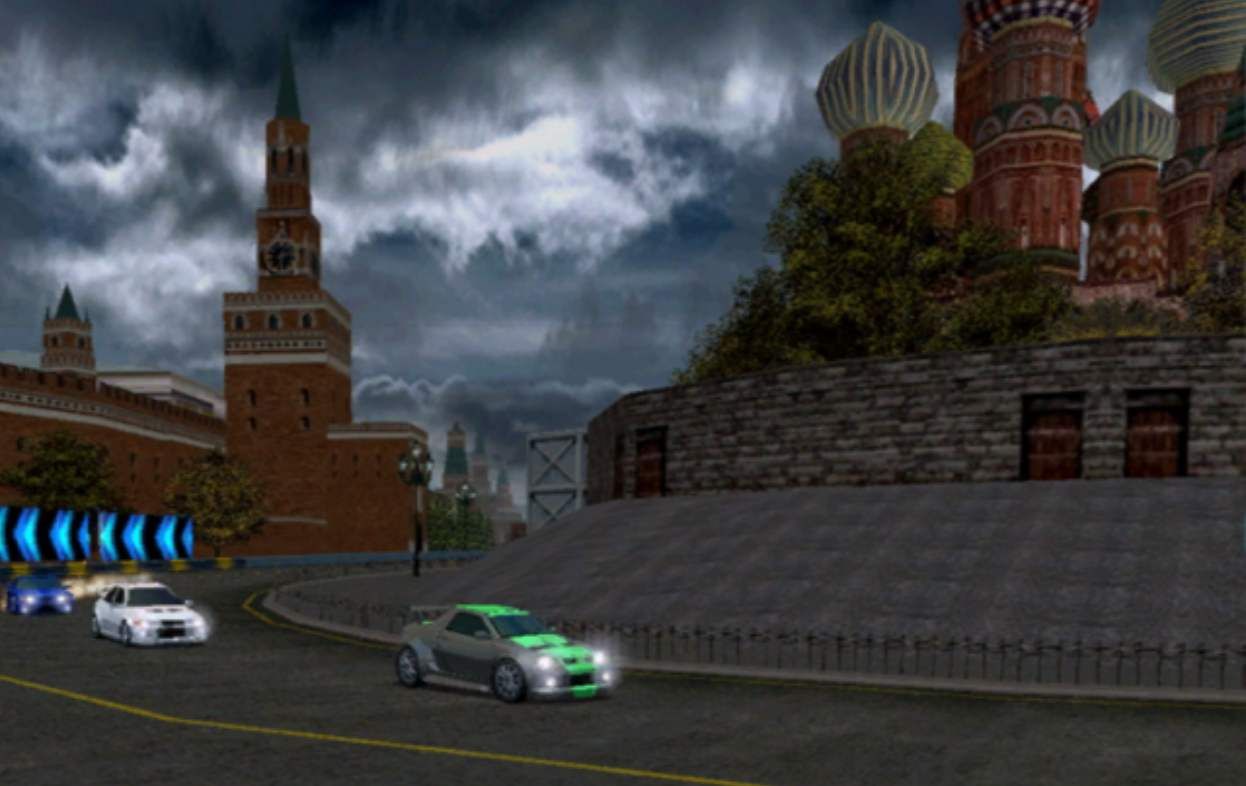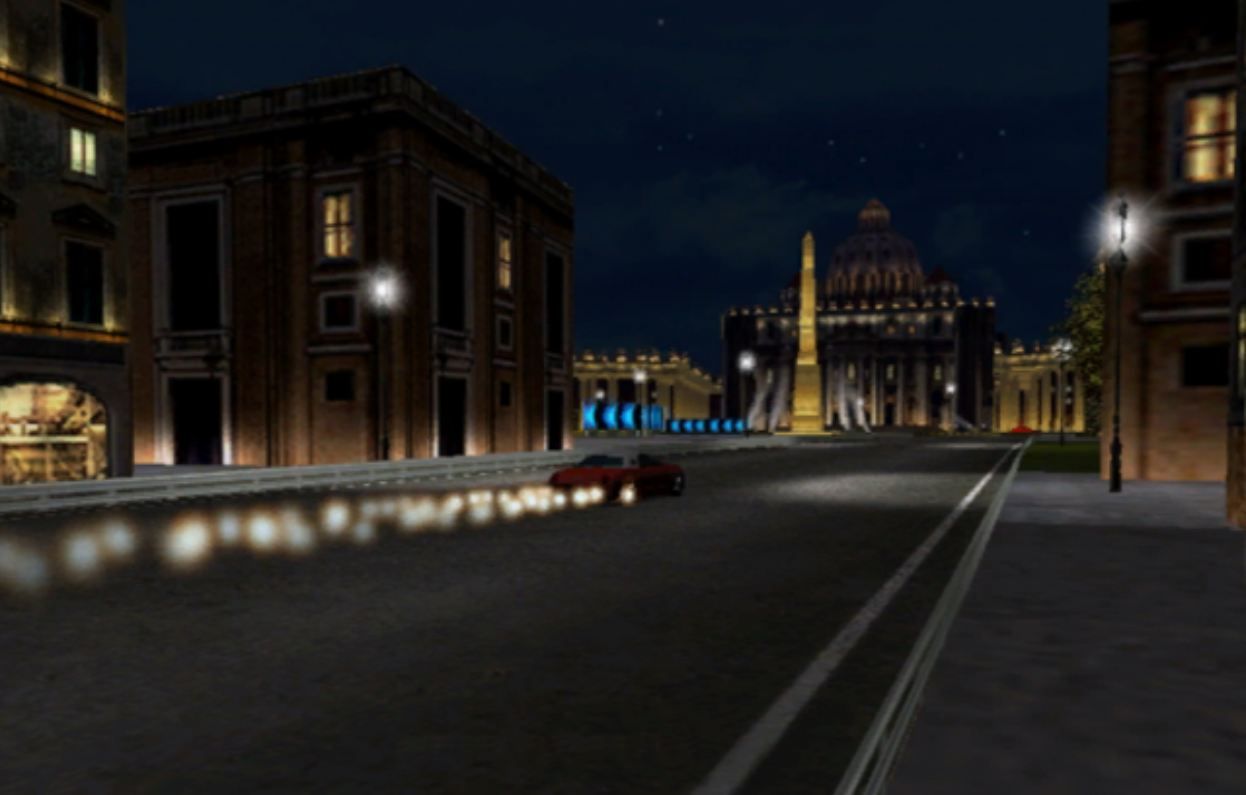Watch your step, for you’ve just entered the Graveyard. Inside, we’ll be digging up games that have long been without a pulse. You’ll see both good and bad souls unearthed every month as we search through the more… forgotten…parts of history.
We covered Blur almost three years ago because it was one of the 360/PS3's greatest action-racing games and the only game on the market at that time featuring real-world vehicles and a power-up system. One game that did this much earlier, however, was a GameCube exclusive that didn't get much coverage at all - nor did it become something that gained a cult following later, like Beyond Good and Evil. Fittingly, this is another Ubisoft release that fell under the radar and yet has never been re-released since.
City Racer very much evokes that budget game that would come out at the tail-end of a system's life to offer something for $20 in a bargain bin at a drug store, but offers quite a bit of variety within its confines. The early to mid-'00s were a fascinating time for racing games because you had your big-time games like Forza Motorsport just starting out alongside veteran franchises like Gran Turismo, Need For Speed and Project Gotham Racing, but then you had budget games that took cues from bigger games or in the case of City Racer, did their own thing to a fair degree.
Basic races are featured alongside time trials and an especially-interesting chase mode. As the name implies, this is a bit like the arcade classic Chase HQ where you played as two cops that evoked, but were legally-distinct from, Crockett and Tubbs from Miami Vice as they smashed drug dealers and other criminals off the road. Looking at the game in hindsight, it's very much a proof of concept for things like takedowns in the Burnout series that would then become a more-accepted driving mechanic in games. Here, you can play as the cop just like Chase HQ, but also as the criminal out to evade capture.
Need For Speed: Hot Pursuit may have done this kind of thing before, but the smaller nature of City Racer's tracks set in real-world areas makes it feel more arcade-like. The pacing as a whole is very much something that would have fit in with arcades because races are over in a few minutes and players have the ability to use power-ups in a way that is nearly a decade ahead of Blur doing it with realistic-looking vehicles. There are things like missiles, mines, shields and health pickups -- so everything is rooted in a realistic setup and it works nicely.
A reticule comes up when you have a missile handy and lets you know if it's a good time to fire or not. It's a small thing, but it helps cut down on wasting missiles and when you drive over the boxes, you have no idea what you're going to get. It's a balanced system, though, and you still have to be able to race well to do well -- you can't just tank the first two laps and rely on rubber-band AI to catch up to the front of the pack by the end. Having so much variety in a budget racing game is nice, but it wouldn't worth much if the core racing wasn't fun -- and City Racer is a blast to play even when compared to modern-day games.
There's a decent amount of vehicle variety to work with after a bit of time, but it's limited to start out. Thanks to some unlocks, you'll be able to enjoy a nice blend of vehicle types -- from slower to quicker vehicles, alongside unlocking more tracks for all the game modes. Most budget games kept variety of modes, cars and tracks limited, but with a couple hours of time, you have pretty much everything the game has to offer at your fingertips. It's impressive how many little touches the game excels at.
Moving the right stick enables a variety of camera switches -- including a cinematic view that's tricky but makes it almost feel like an overhead arcade racer akin to Off-Road or Super Sprint. It also allows the player to play a HUD-free game, which is something more games should do even today and allows for easier screenshots -- akin to a more modern in-game photo mode thanks to the cinematic camera. It's a lot of fun to just play an exhibition race and try out the cinematic camera and see what results you can get while still trying to stay ahead of the pack. It's an interesting challenge to get into second place and just try to pass with the cinema camera. It's not something you would put on a box to sell the game, but it's a neat small thing that adds challenge where it otherwise wouldn't be.
City Racer excels in fun, but does fall short visually outside of providing nice viewpoints to race with. Cars are unspectacular, but do have a decent physics model when they flip over and show off a bare-bones bottom. You can see some cut corners, but it's a decent-looking game overall even if it's not much of a looker as a system showcase for what the GC could do like F-Zero GX. The soundtrack is generic, with rock that kind of gets the blood pumping, but not much. The sound effect work is impressive, though, with nice crunching effects for crashes that shine during the chase mode.
City Racer is inexpensive to get ahold of now and it's surprising to see it stuck on the GC without any other versions being made. Usually, games like this would get a multi-platform release alongside the PS2 and GC -- like Ribbit King and other racing games like Ford Racing to maximize profits, but this was stuck on that platform. If there was a GC tier to the Switch Online service, it would be a natural fit on there just to get more eyeballs on it that missed it the first time -- akin to games like Prehistorik Man or The Ignition Factor hitting the SNES tier there. It's not the greatest racing game ever made, but it is a fun time and easy to miss out on due to how low-profile it was.



